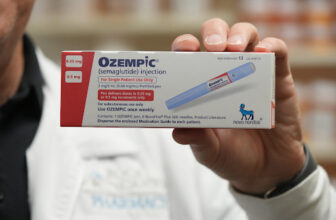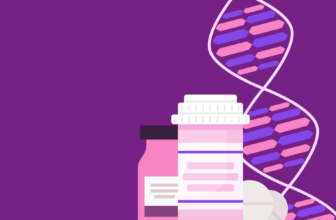
[adinserter block=”3″]
The hibiscus (karkade) plant is more than just an ornamental flora that produces pretty and colorful flowers. It has several health benefits, too. North Africa and Southeast Asia are the main areas from which these beautiful plants originated. Various parts of the plant have been utilized for various purposes, around food and medicine.
Dried parts of this plant are used in hibiscus tea, which, when brewed, assumes a deep red color. It is flavorful with sweetness and tartness and similar to cranberry. It can be consumed both as a traditional hot tea or even as an iced tea during warm weather and is rich with health benefits, suitable if you want to jazz it up and keep it healthy.
Whether you want to jazz up your regular afternoon chai or breakfast beverage, hibiscus tea is an option. This herbal tea is religiously made by soaking dried hibiscus plant parts in hot water, and then you can brew the tea as you like. Scroll down to read the benefits of hibiscus tea for your day-to-day life.
Also Read: Health Benefits of Green Tea – A Good Health Drink For All
What Are the Health Benefits of Hibiscus Tea?
Hibiscus(karkade) tea has been used as an alternative medicine in several African countries to help manage body temperature when infected with a fever. As history tells us, it has also been popularly used to treat heart disease, sore throat, and high blood pressure. The potential health benefits of hibiscus are listed below.
1. Rich In Antioxidants
Hibiscus tea is often preferred because it concentrates antioxidants and is caffeine-free. The antioxidant properties of this “chai” aid in combat against free radicals, which attack your body’s cells and accelerate your aging process. Not only does it accelerate aging, but it also tends to increase your risk of being prone to illnesses and diseases such as dementia, diabetes, heart disease, and more.
The antioxidants found in hibiscus tea may not be able to stop this damaging process completely. Aging, after all, is inevitable, but it might slow down the process and keep your skin and body as healthy and young as possible.
2. It Helps Your Heart
There have been research studies that have directly linked the consumption of hibiscus tea with healthy heart properties, including decreasing dangerously high blood pressure. This study observed that those participants who consumed 3 cups of 8 oz servings of hibiscus herbal tea daily experienced an improvement in their high blood pressure condition.
It is worth mentioning that hibiscus tea has shown considerable improvement in lowering both systolic and diastolic blood pressure. It is, however, highly advised that you discuss consuming hibiscus tea to help the condition of your heart with a healthcare professional, in case you have a medical history of severe heart conditions.
3. It Helps Your Cholesterol Levels
This health benefit still needs some extensive research. However, despite minimal research, it has been revealed that the consumption of hibiscus tea predominantly affects your blood cholesterol levels. Hibiscus tea helps increase HDL cholesterol (good cholesterol) and decrease LDL cholesterol (bad cholesterol).
However, there also exist some conflicting studies which directly contradict the above results. Therefore, more research is needed in this area before concrete determination.
4. It is Linked to Weight Loss
Hibiscus tea is simply an herbal tea and not a substitute for a healthy, balanced diet. It will not help your extra weight disappear overnight, but it may play a role in your mission to lose some weight owing to its diuretic properties. Although some research links hibiscus tea with weight loss, more studies are needed to make a concrete statement.
Additionally, the anti-inflammatory properties of hibiscus help keep stress hormones at bay. Fat storage in the body is majorly due to the stress hormone, cortisol. Hibiscus tea, rich in anti-inflammatory properties and antioxidants, helps keep that in check.
Also Read: 6 Supplements to Reduce Cortisol Levels
5. Hibiscus Tea Keeps Cravings At Bay
Do you often crave something sweet or tart after a meal to help change that lasting taste in your mouth? What better healthy option can there be, if not some hibiscus tea? It is the perfect mix of sweet taste and a tart taste, and it makes you forget all your weird cravings which could prove to be unhealthy, even. If the taste of tart keeps you away, try it with a drop of honey, and you might have a healthier substitute for your post-meal cravings.
6. Relieves menstrual cramps
Hibiscus tea is rich in compounds like anthocyanins, flavonoids, and polyphenols, which have potent anti-inflammatory effects. During menstruation, the body releases prostaglandins, hormones that cause inflammation and muscle contractions in the uterus, leading to cramping. The anti-inflammatory compounds in hibiscus tea can help reduce the production of these prostaglandins, thereby alleviating inflammation and associated menstrual pain.
Also Read: 7 Super Healthy Drinks That Help With Period Cramps
7. Helps With Digestion
The diuretic properties of hibiscus tea promote the amount of salt and water expelled from the body through daily urination. This same property also helps with lowering blood pressure. The effect of pulling salt from the bloodstream plays a significant role in that case. Besides, drinking hibiscus extract tea is like drinking healthy flavored water. It helps keep you necessarily hydrated and, as a result, prevents constipation. All this, just like a game of dominoes, also aids in the digestive process.
8. Supports Immune System
Hibiscus tea is rich in vitamin C, which is potent in its antioxidant properties and is popularly responsible for maintaining a healthy immune system. Additionally, hibiscus tea is a good source of iron, an essential mineral in keeping the immune system’s balance and red blood cells. The tea’s vitamin C also helps absorb blood iron, which is only beneficial overall.
Also Read: 12 Best Vitamin C Tablets & Supplements of 2024
9. Helps Your Kidneys
A study on rats revealed that hibiscus tea is quite beneficial when it comes to the prevention of the formation of kidney stones from calcium oxalate crystals. More research is, of course, required before a concrete statement is made. The research must be taken further to conclude that hibiscus tea will indeed prove helpful in preventing kidney stones in humans.
10. Helps Your Liver
This tea is a must after you have had a particularly eventful night, with alcohol and partying and everything involved. Research studies in animals and humans have revealed that hibiscus tea saves the liver from damage. Some of these studies revealed decreased signs of liver damage, and others revealed increased concentration of detoxification enzymes in the liver.
It should be noted, however, that these studies used hibiscus extract and not hibiscus tea, the former being far more potent when compared to the latter. It is recommended that you do not consume hibiscus tea as a direct solution to liver damage. It would help if you had a detailed discussion with your medical professional about available options for remedies and treatments.
Also Read: Can Berberine Damage The Liver? Unveiling The Truth
Is Hibiscus tea Really good for you?
Hibiscus tea is generally considered good for you and offers several potential health benefits. This vibrant herbal tea is made from the hibiscus flower’s dried calyces (sepals) and is packed with nutrients and bioactive compounds that contribute to its therapeutic properties.
One of the primary reasons hibiscus tea is good for you is its rich antioxidant content. It contains powerful antioxidants like vitamin C, anthocyanins, and polyphenols, which help neutralize harmful free radicals and protect the body from oxidative stress, a leading cause of various chronic diseases.
Additionally, hibiscus tea has been associated with several health benefits, including lowering blood pressure, improving cholesterol levels, and supporting weight management efforts. Its diuretic properties and potential to boost metabolism make it a valuable aid for those looking to shed excess pounds.
Can dried hibiscus flowers be used in tea?
Dried hibiscus flowers can be used to make hibiscus tea, also known as agua de Jamaica or flor de Jamaica tea. The hibiscus plant’s vibrant, crimson calyces (the cup-shaped structures that protect the flower buds) are harvested, dried, and then steeped in hot water to create this tart and refreshing herbal infusion. The dried hibiscus flowers are a rich source of vitamin C, antioxidants like anthocyanins, and other beneficial compounds that contribute to the tea’s potential health benefits. Hibiscus tea can be enjoyed hot or cold, and its tangy yet slightly sweet flavor makes it a delightful and nutritious beverage option. Many cultures worldwide, particularly in regions where hibiscus plants are commonly grown, have embraced the use of dried hibiscus flowers in tea-making for their unique taste and potential therapeutic properties.
Conclusion
We learn the benefits of Hibiscus tea in this article. Hibiscus tea offers a myriad of health benefits due to its rich nutritional profile and potent bioactive compounds. From promoting heart health and supporting weight management to relieving menstrual cramps and aiding digestion, this vibrant herbal infusion is a versatile addition to your daily routine. However, it’s essential to consume hibiscus tea in moderation and consult with your healthcare provider, especially if you’re pregnant, breastfeeding, or taking prescription medications.
[adinserter block=”3″]
Credit : Source Post






